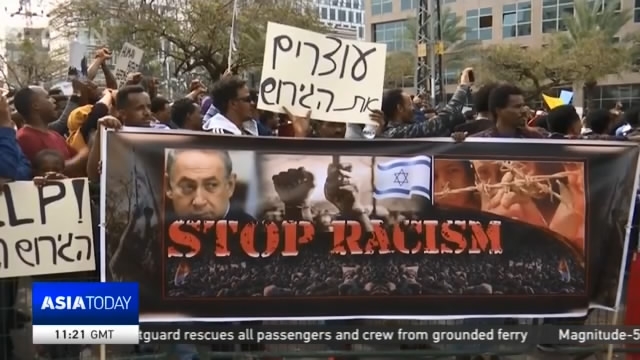
19:52, 25-Mar-2018
African Migrants in Israel: The difficult situation facing asylum seekers

Deportations are set to officially begin in one week. The rally was a last minute effort to try and sway the government from implementing the controversial plan. Let's review the situation of the African migrants in Israel.
Deportation or in prison? Two deplorable choices for the more than 40 thousand African refugees in Israel. Nearly all the migrants come from war-torn regions of Sudan and Eritrea, and started to arrive in 2007. However, life still seems very difficult.
ANITA SILBER PROTESTER "Israeli government is doing nothing, OK? They took these people in. They threw them out in south Tel Aviv. They don't give them work permits. They don't give them any medical help, any education or healthcare. I think it's a shame. It's a shame."
Israel considers the vast majority of migrants to be job seekers, claiming it has no legal obligation to keep them. The Israeli government approved the plan in January to require the refugees to choose between detention in Israel or head to a third country in Africa. However, many stayed. Last week, the government closed the controversial Holot detention center. It housed African refugees since 2013.
The expulsion plan has drawn attention and protest from the UN and human rights agencies. They criticized that those deported were exposed to extortion, imprisonment and even death. Israel's supreme court earlier this month suspended the plan until March 26th on the condition the state is more transparent with its agreements with Uganda and Rwanda to receive the migrants.

SITEMAP
Copyright © 2018 CGTN. Beijing ICP prepared NO.16065310-3
Copyright © 2018 CGTN. Beijing ICP prepared NO.16065310-3